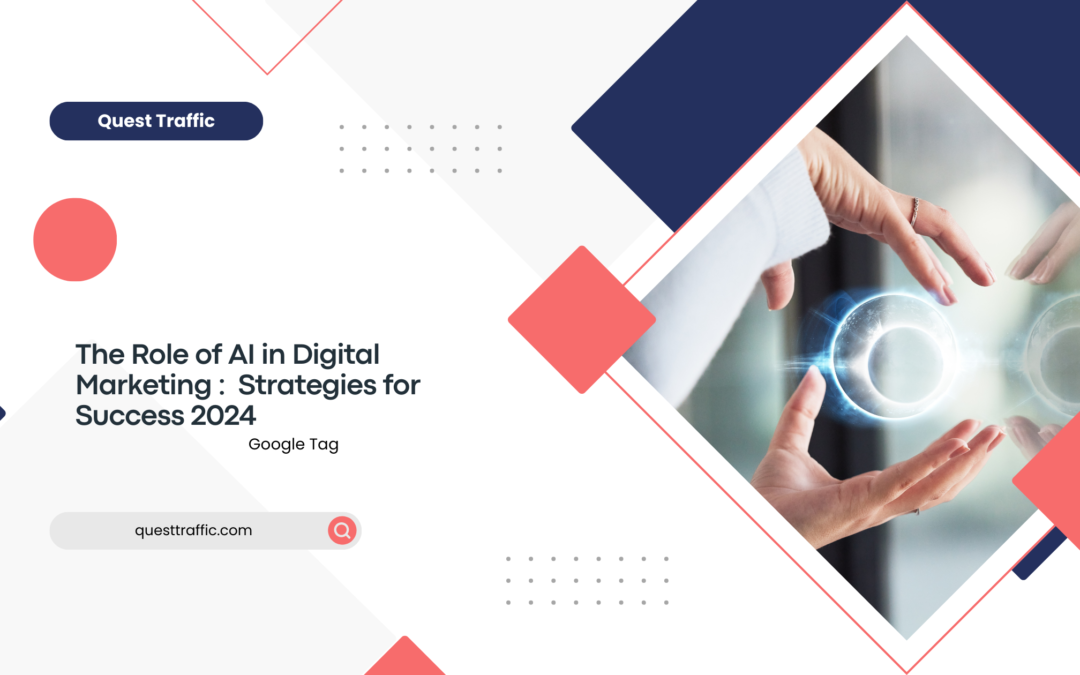In today’s rapidly evolving digital landscape, Artificial Intelligence (AI) has emerged as a transformative force in shaping the future of marketing strategies. From enhancing customer experiences to optimizing campaign performance, AI technologies are redefining how businesses engage with their audiences and drive growth. This article explores the multifaceted role of AI in digital marketing, highlighting its key applications, benefits, and future implications.
Table of Contents
ToggleUnderstanding AI in Digital Marketing
Artificial Intelligence refers to the simulation of human intelligence in machines that are programmed to think and learn like humans. In the realm of digital marketing, AI integrates vast amounts of data, automates tasks, and provides actionable insights that empower marketers to make informed decisions and deliver personalized experiences at scale.
Key Applications of AI in Digital Marketing
Advanced Data Analytics: AI-powered analytics tools can process and analyze large volumes of data in real-time, extracting valuable insights into consumer behaviors, preferences, and trends. This enables marketers to segment audiences effectively, predict outcomes, and tailor marketing strategies accordingly.
Personalized Customer Experiences: AI enables marketers to create highly personalized experiences for consumers. By leveraging machine learning algorithms, marketers can analyze customer data to understand individual preferences and behavior patterns. This allows for the delivery of targeted content, product recommendations, and customized marketing messages, which significantly enhances engagement and conversion rates.
Chatbots and Virtual Assistants: AI-powered chatbots and virtual assistants have revolutionized customer service in digital marketing. These intelligent bots can interact with customers in real-time, answer inquiries, provide recommendations, and even assist in completing transactions. They operate 24/7, improving customer satisfaction by offering instant responses and support.
Content Creation and Curation: AI tools are increasingly being used to create and curate content. Natural Language Generation (NLG) algorithms can generate human-like text based on data inputs, which helps in writing product descriptions, blog posts, social media updates, and more. AI can also curate content by identifying relevant articles, videos, and images that align with a brand’s messaging and target audience.
Predictive Analytics and Forecasting: AI algorithms excel in predictive analytics, forecasting future trends and outcomes based on historical data and real-time insights. Marketers can use predictive analytics to anticipate customer needs, optimize pricing strategies, foresee market fluctuations, and allocate resources more effectively.
Marketing Automation: AI streamlines repetitive tasks and automates workflows across various marketing channels. From email marketing campaigns to social media scheduling and ad placements, AI-driven automation ensures efficiency and consistency while freeing up marketers to focus on strategy and creativity.
Benefits of AI in Digital Marketing
- Improved Efficiency and Productivity: AI automates time-consuming tasks, allowing marketers to allocate resources more efficiently and focus on strategic initiatives.
- Enhanced Personalization: AI enables hyper-personalization by delivering relevant content and offers tailored to individual preferences, which fosters stronger customer relationships and loyalty.
- Data-Driven Decision Making: AI-driven analytics provide actionable insights that guide informed decision-making, leading to more effective marketing strategies and higher ROI.
- Cost Savings: By automating processes and optimizing campaigns, AI helps reduce operational costs associated with marketing efforts.
Future Implications and Trends
Looking ahead, the role of AI in digital marketing is poised to expand further. Key trends include:
- Augmented Reality (AR) and Virtual Reality (VR): AI combined with AR/VR technologies will enhance immersive brand experiences and product demonstrations.
- Voice Search Optimization: AI-powered voice assistants (e.g., Siri, Alexa) are shaping SEO strategies, requiring marketers to optimize content for natural language queries.
- Ethical Considerations: As AI continues to evolve, ethical concerns regarding data privacy, bias in algorithms, and transparency in AI-powered decisions will become increasingly important.
Conclusion
In conclusion, AI is not just a tool but a catalyst for innovation in digital marketing. By leveraging AI technologies, businesses can unlock new opportunities for growth, improve customer engagement, and stay ahead in an increasingly competitive market landscape. Embracing AI-driven strategies is essential for marketers looking to future-proof their digital marketing efforts and deliver exceptional experiences that resonate with today’s tech-savvy consumers.
A Seasoned SEO professional with a proven track record in boosting online visibility and driving organic traffic. Skilled in keyword research, on-page optimization, and technical SEO, dedicated to delivering data-driven strategies that enhance search engine rankings and improve ROI.


